Coconut
Coconuts are a type of tropical fruit that grow on coconut palm trees. They have a hard, brown outer shell, and inside, there is a sweet, white flesh called the coconut meat. Coconuts also contain a refreshing and hydrating liquid called coconut water. The meat and water of coconuts are commonly used in cooking and baking, as well as in various beverages and desserts. Coconut oil, which is extracted from the meat, is also used in cooking and as a natural ingredient in skincare and haircare products. Coconuts are known for their tropical flavor and are enjoyed by many people around the world.
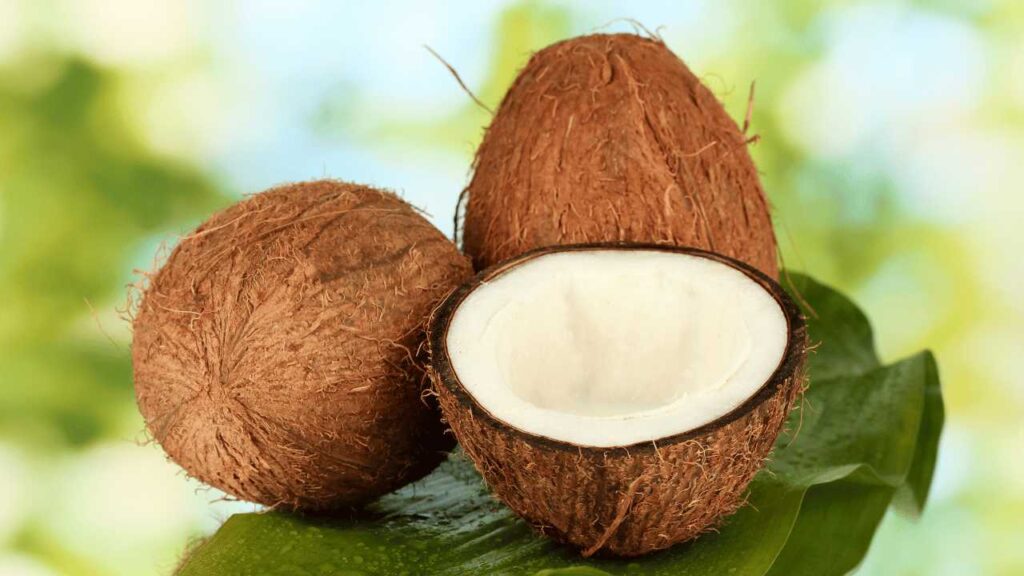
How Coconut Grow?
Coconut palms are native to tropical regions and thrive in warm climates with sandy soil and plenty of sunlight. The process of coconut growth starts with a coconut seed, which is the mature fruit of the tree. When the seed falls from the tree and lands on the ground, it can sprout and start to grow into a new coconut palm tree. The seed absorbs water from the soil and begins to germinate, forming roots and a shoot. As the tree grows, it produces leaves and eventually flowers. The flowers develop into coconuts, which take several months to mature. Once the coconuts are fully grown, they can be harvested and enjoyed for their delicious flesh and water.

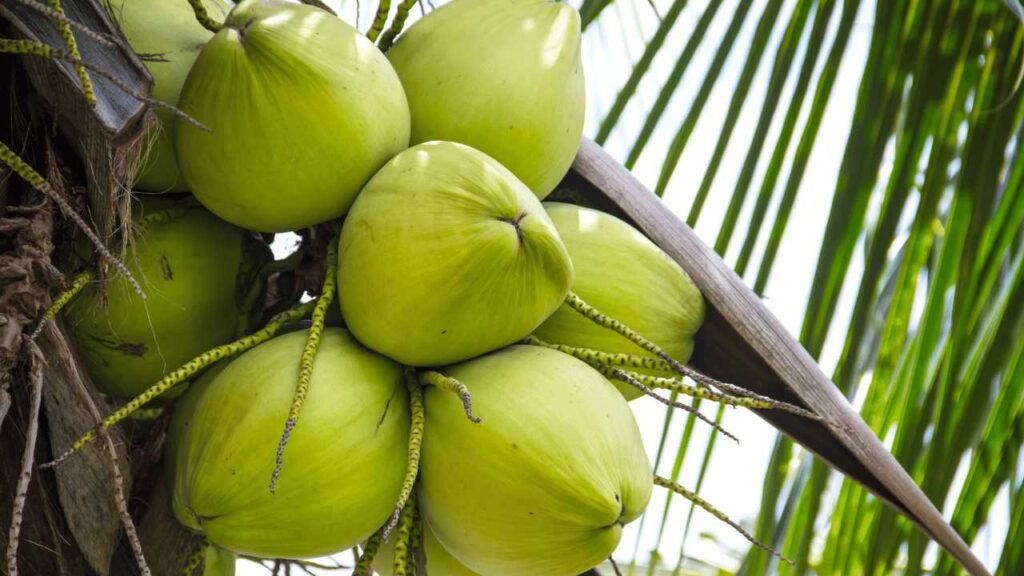
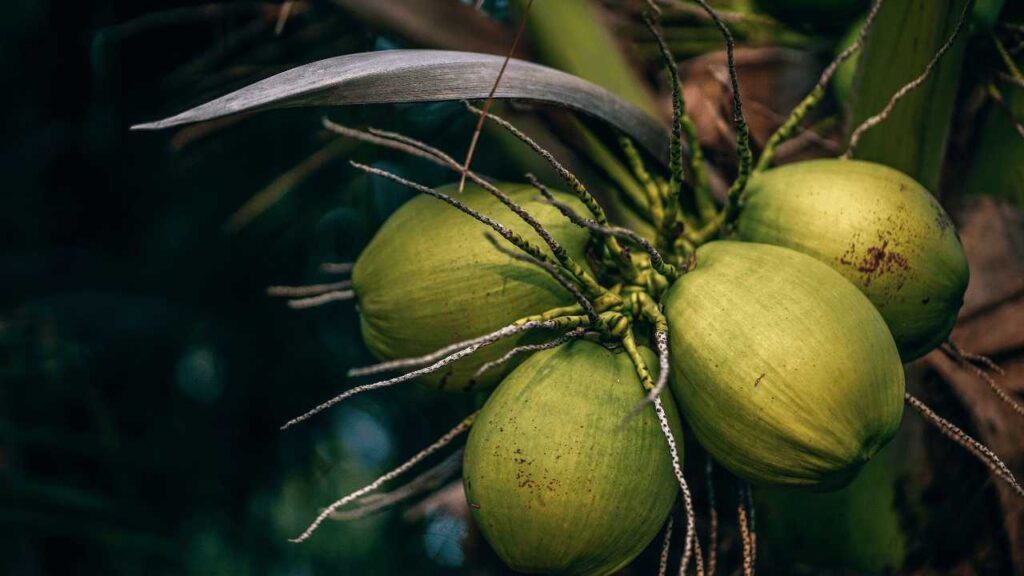
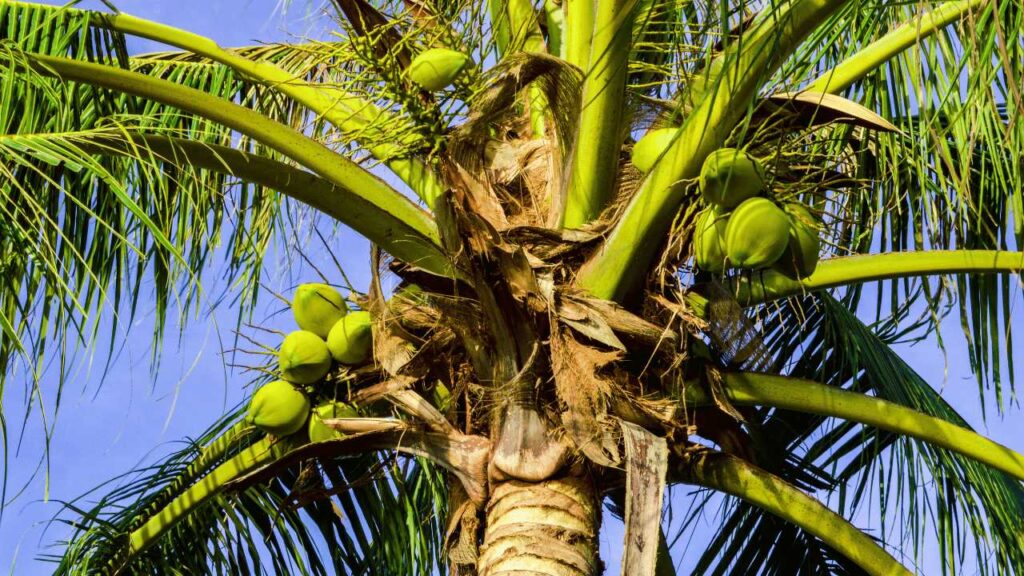
Cultivation of Coconut
Coconut palms are found in many tropical countries around the world, such as Indonesia, the Philippines, India, Thailand, Sri Lanka, Brazil, and the coastal regions of Africa. Coconuts are an important part of the culture and cuisine in these regions, and they play a significant role in the local economy. From coconut water to coconut oil and coconut-based dishes, these countries embrace the versatility and deliciousness of coconuts. If you ever have the chance to visit these places, make sure to try some fresh coconut treats.
Types Of Coconut
There are several different types of coconuts, each with its own unique characteristics. Here are a few popular types:
- Green Coconuts: These are young coconuts that are still green in color. They have a lot of coconut water inside, and the flesh is soft and jelly-like.
- Brown Coconuts: These are mature coconuts that have a brown, hairy outer shell. They have less coconut water, and the flesh is firm and thick.
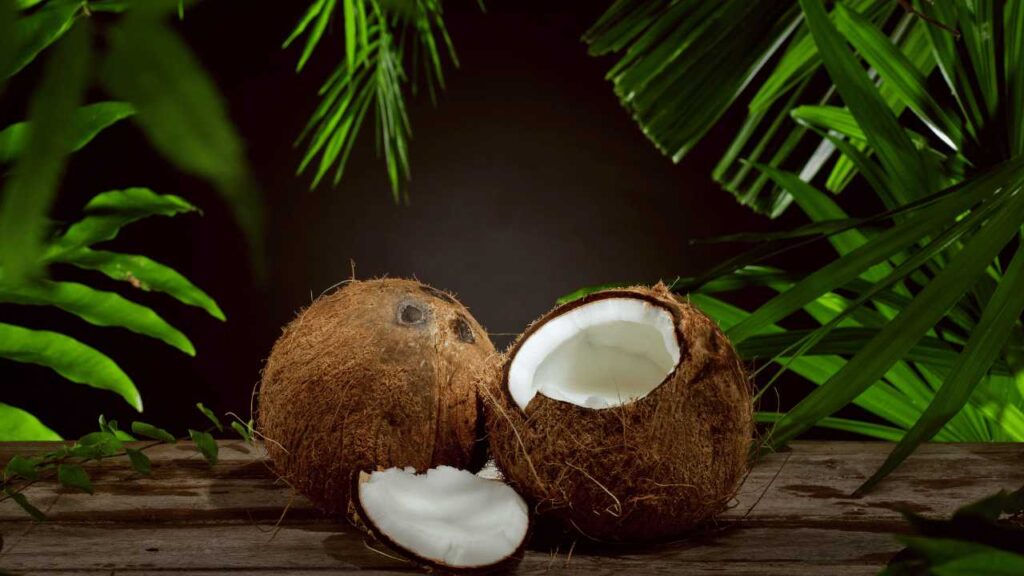
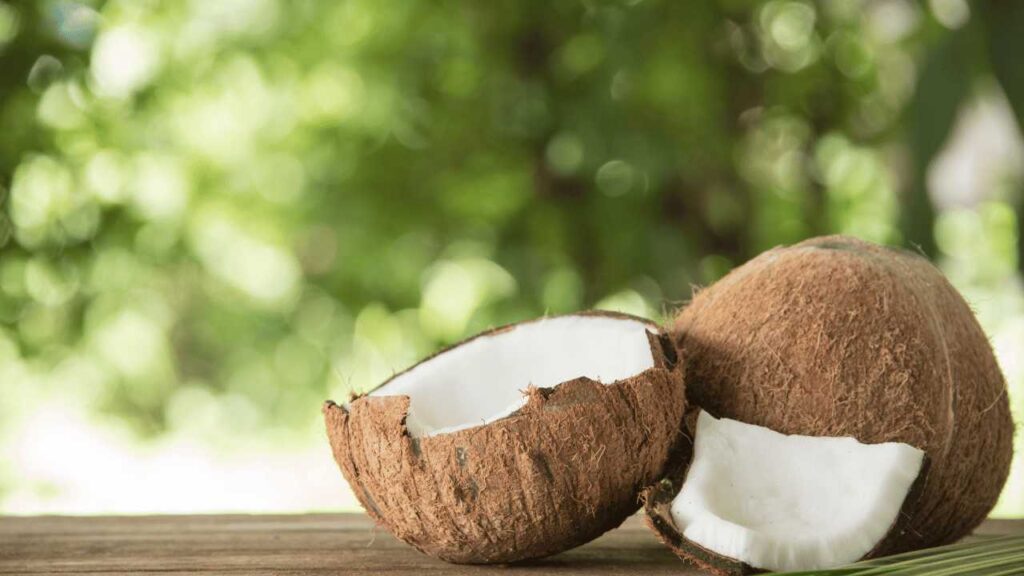
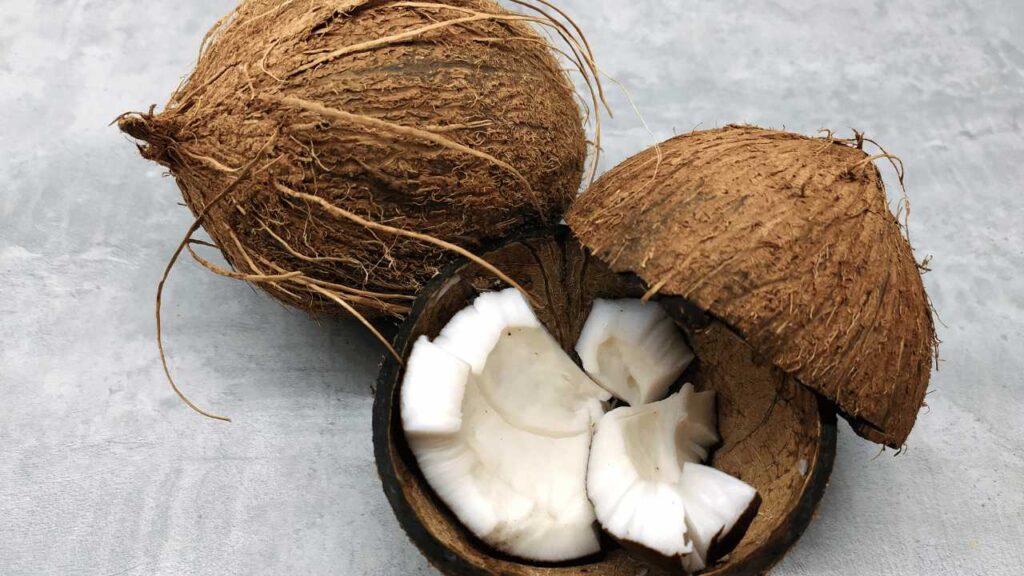
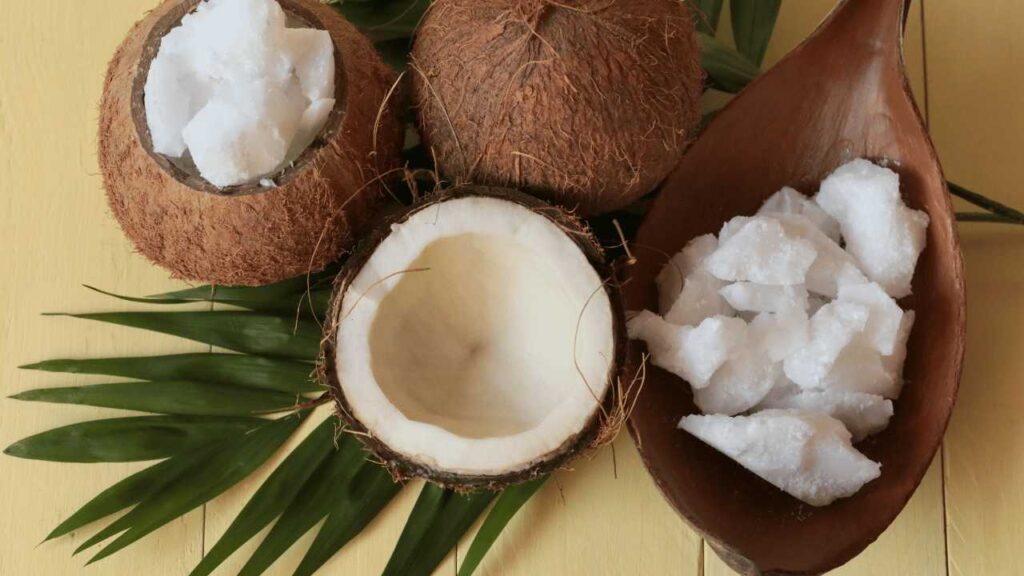
- Dwarf Coconuts: These are smaller-sized coconuts compared to the regular ones. They are often easier to handle and have a sweeter taste.
- King Coconuts: These coconuts are native to Sri Lanka and are bright orange in color. They are known for their sweet water and are often used for refreshing beverages.
- Macapuno Coconuts: These coconuts have a mutant form of the coconut meat, resulting in a jelly-like consistency. They are often used in desserts and sweet dishes.
Benefits Of Coconut
Coconuts offer numerous benefits. For example:
- Hydration: Coconut water is a natural isotonic drink, meaning it has the same electrolyte balance as our body fluids. It’s a great way to rehydrate and replenish electrolytes after exercise or on a hot day.
- Nutrient-Rich: Coconut meat is not only delicious but also packed with nutrients. It contains fiber, which aids in digestion and helps maintain a healthy weight. It’s also a good source of vitamins such as vitamin C, vitamin E, and various B vitamins. Plus, it provides essential minerals like potassium, manganese, and copper.
- Energy Boost: Coconuts are a great source of quick and sustained energy. The natural sugars and healthy fats found in coconuts can provide a much-needed energy boost, making them a perfect snack for an active lifestyle.
- Digestive Health: The fiber content in coconut meat supports a healthy digestive system. It can help prevent constipation and promote regular bowel movements.
- Heart Health: When consumed in moderation, coconut oil can be part of a heart-healthy diet. It contains medium-chain fatty acids, which are metabolized differently from long-chain fatty acids and may have a positive impact on heart health.
- Dietary Alternatives: For those with dietary restrictions, coconuts offer great alternatives. Coconut milk can be used as a dairy-free option in cooking and baking, while coconut flour is a gluten-free alternative for baking. Coconut oil is a popular substitute for butter or other oils in many recipes.
- Skincare and Haircare: Coconut oil is widely used in skincare and haircare routines. It’s known for its moisturizing properties and can help nourish and hydrate the skin and hair.
These are just a few of the many benefits that coconuts have to offer. They truly are a versatile and nutritious fruit.
Benefits Of Coconut Oil
Coconut oil offers numerous benefits for the body. Here are some of the advantages of using it:
- Skin Moisturizer: Coconut oil is an excellent natural moisturizer for the skin. It can help hydrate and nourish dry skin, leaving it soft and smooth.
- Hair Care: When applied to the hair, coconut oil can help moisturize and condition it, reducing frizz and promoting healthy hair growth.
- Oral Health: Coconut oil pulling, a technique where you swish coconut oil in your mouth, can help improve oral health by reducing harmful bacteria and promoting gum health.
- Cooking Oil: Coconut oil is a great alternative to traditional cooking oils. It has a high smoke point and adds a delicious flavor to dishes.
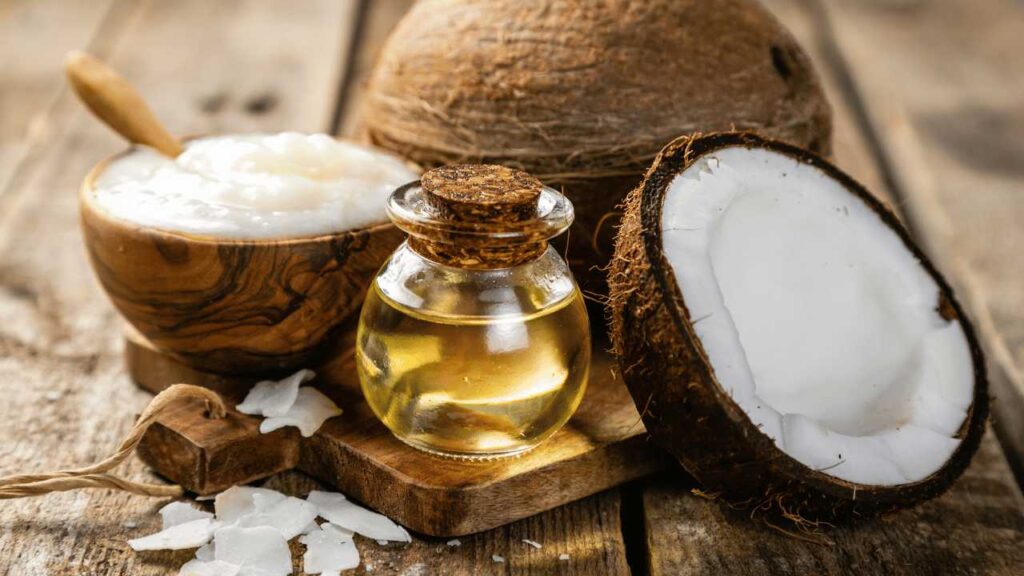
Coconut Oil is the healthiest oil on the earth.
- Weight Management: Some studies suggest that the medium-chain triglycerides (MCTs) in coconut oil can help increase feelings of fullness and boost metabolism, potentially aiding in weight management.
- Antimicrobial Properties: Coconut oil contains lauric acid, which has antimicrobial properties. It may help fight off harmful bacteria, viruses, and fungi.
- Sunburn Relief: Applying coconut oil to sunburned skin can provide a soothing effect and help with healing.
Remember, while coconut oil has many benefits, it’s important to use it in moderation as it is high in saturated fat. Enjoy the benefits of coconut oil as part of a balanced and varied diet.
Ways To Consume Coconut
There are different ways to consume coconut, depending on your preferences and the form of coconut you have. Here are some common ways:
- Coconut Water: You can drink coconut water straight from a young, green coconut. It’s refreshing and hydrating, perfect for quenching your thirst.
- Coconut Meat: The white flesh inside a mature coconut can be eaten raw or used in cooking and baking. You can enjoy it as a snack, add it to smoothies, or incorporate it into your favorite recipes.
- Coconut Milk: Coconut milk is made by blending coconut meat with water and then straining it. It’s commonly used in curries, soups, desserts, and beverages.
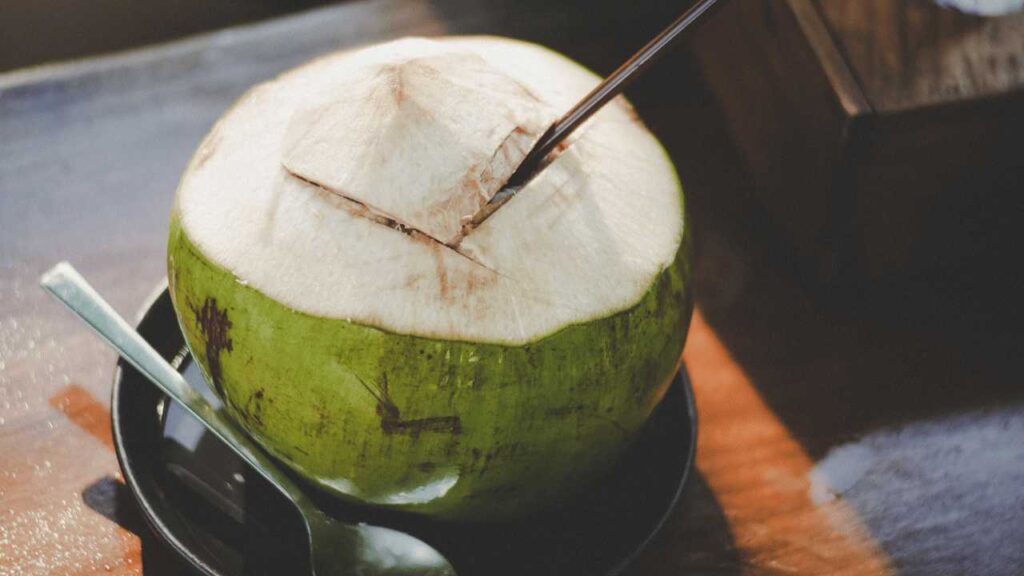
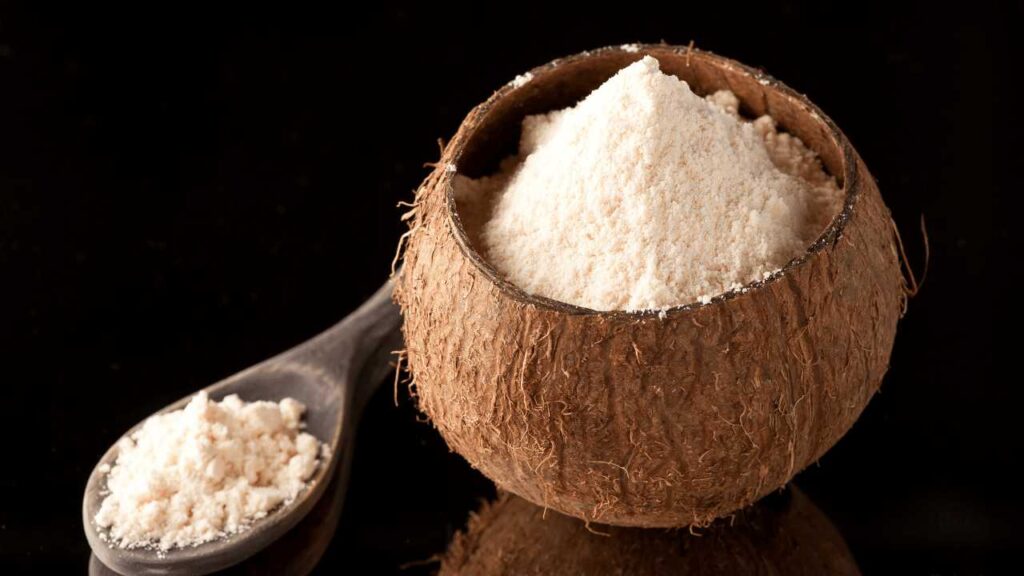
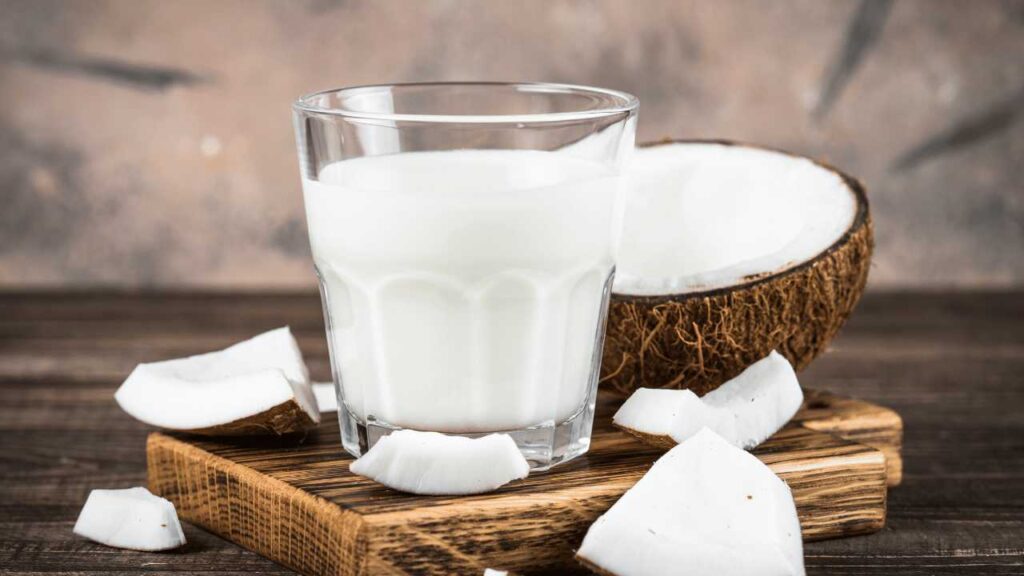
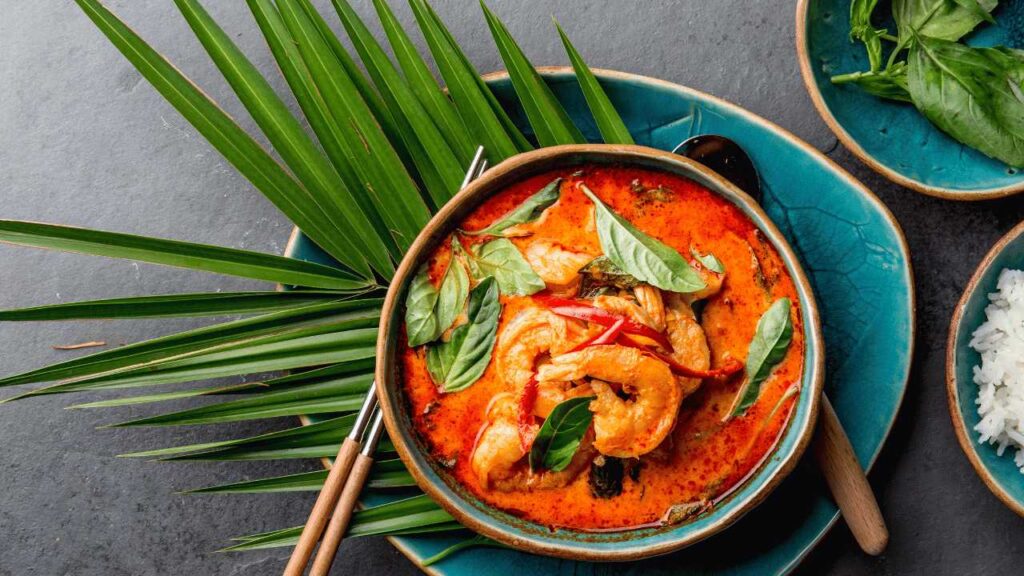
- Coconut Oil: Coconut oil is extracted from the meat of mature coconuts. It can be used for cooking, baking, and even as a spread or dressing.
- Coconut Flour: Coconut flour is made from dried coconut meat. It’s a gluten-free alternative to regular flour and can be used in baking or as a thickening agent in recipes.
Remember to always choose fresh and high-quality coconuts for the best taste and nutritional benefits. Enjoy the tropical goodness of coconuts in whichever way you prefer.
Dishes Of Coconut
Coconut is used in a variety of delicious dishes around the world! Here are some famous coconut-based dishes:
- Coconut Curry: Coconut milk is a key ingredient in many curries, such as Thai green curry or Indian coconut curry. The creamy coconut flavor adds richness to the dish.
- Coconut Rice: This fragrant rice dish is made by cooking rice with coconut milk and sometimes shredded coconut. It pairs well with various curries and grilled meats.
- Coconut Shrimp: Shrimp coated in a crispy coconut batter and then fried or baked is a popular dish in many coastal regions. It’s often served with a sweet and tangy dipping sauce.
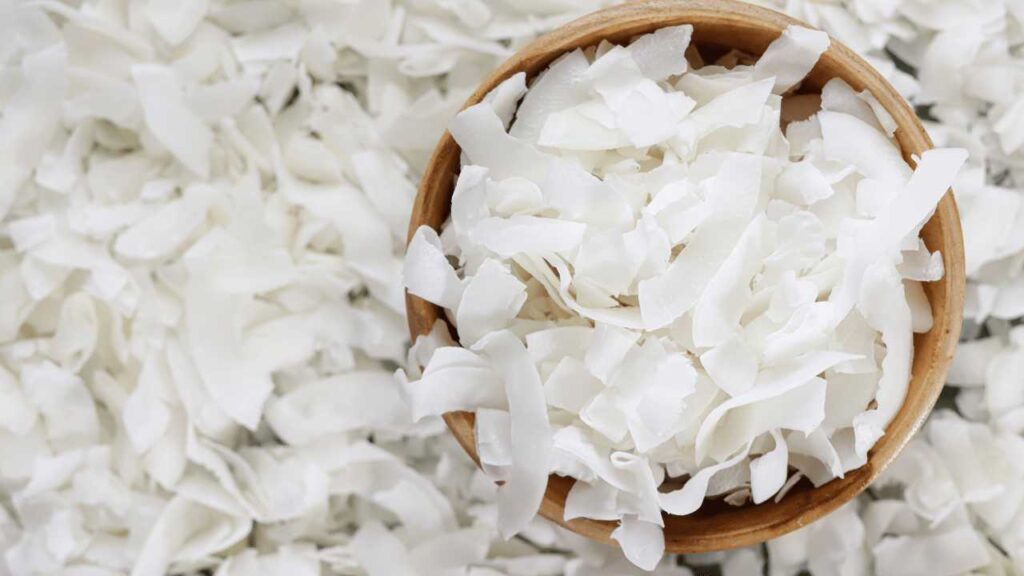
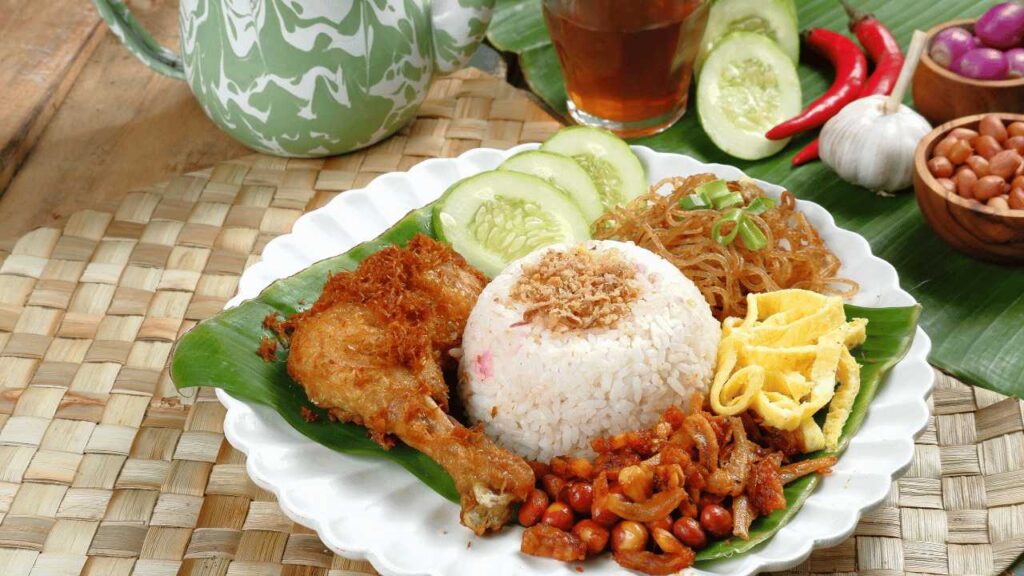
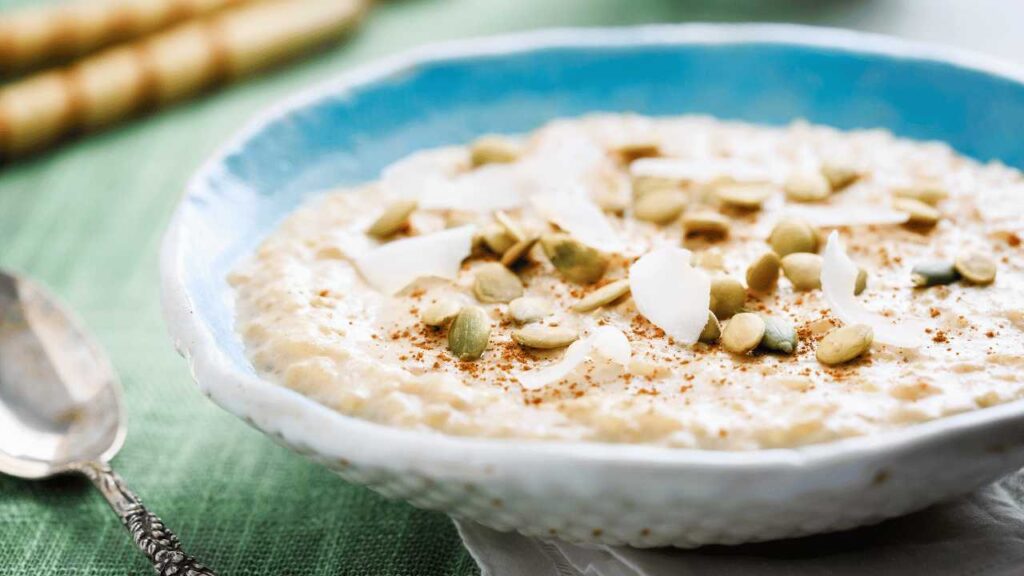
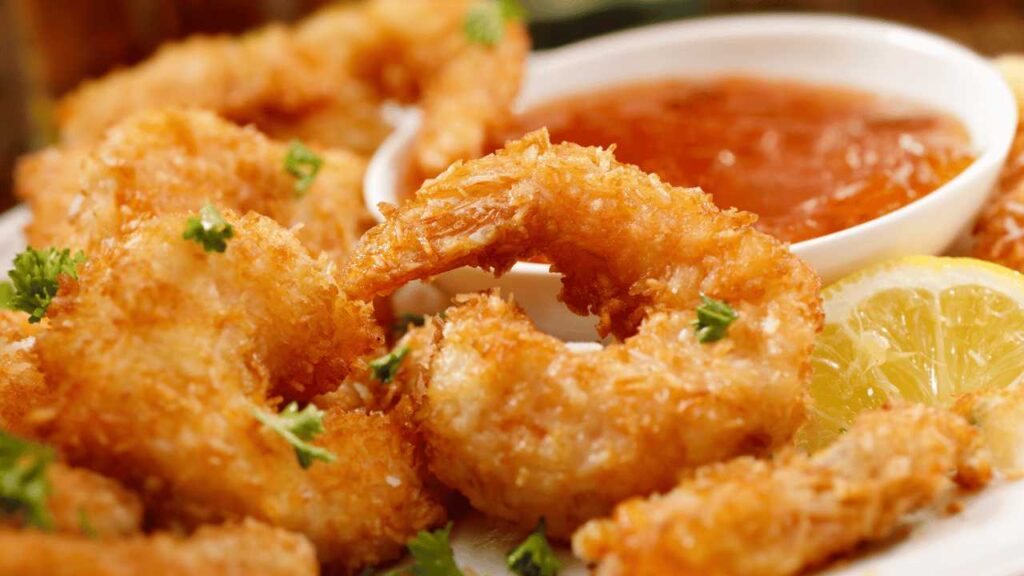

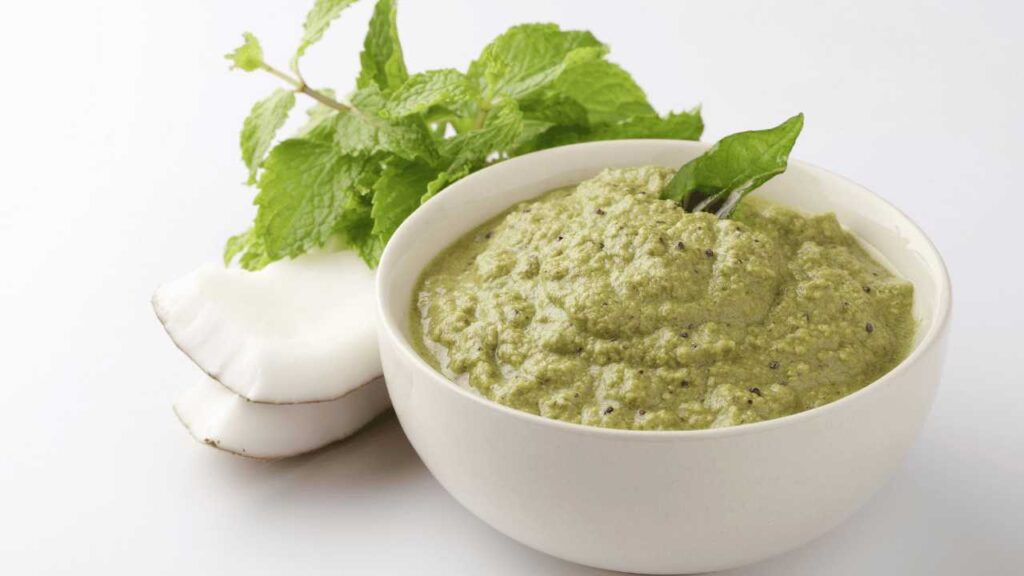
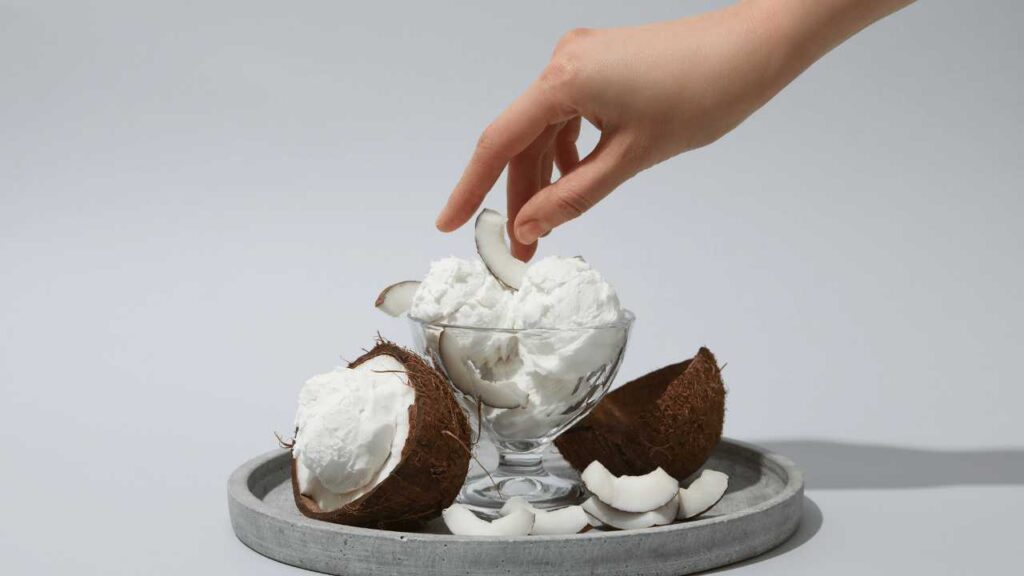
- Coconut Cakes: Coconut cakes are moist and flavorful, often made with shredded coconut and coconut milk. They can be enjoyed as a dessert or a sweet treat.
- Coconut Chutney: A condiment commonly served with South Indian dishes, coconut chutney is made by grinding coconut with spices, herbs, and sometimes yogurt or tamarind.
- Coconut Ice Cream: Creamy and refreshing, coconut ice cream is a tropical delight. It’s made with coconut milk or cream and can be enjoyed in various flavors like mango or chocolate.
These are just a few examples, but there are many more coconut-based dishes to explore and enjoy!